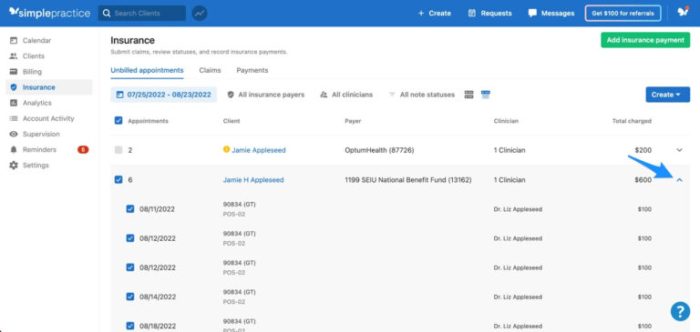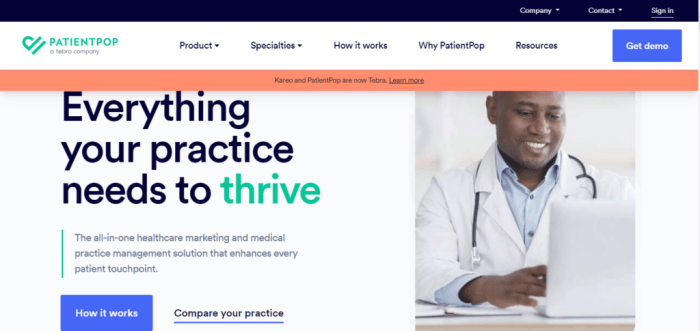Crm software hipaa compliant – In today’s healthcare landscape, protecting sensitive patient data is paramount. The Health Insurance Portability and Accountability Act of 1996 (HIPAA) sets stringent regulations for the handling of Protected Health Information (PHI). For healthcare providers and organizations that rely on Customer Relationship Management (CRM) software to manage patient interactions and data, choosing a HIPAA-compliant solution is not just a best practice—it’s a legal necessity.
This comprehensive guide delves into the intricacies of HIPAA-compliant CRM software, outlining key features, selection criteria, and best practices for ensuring compliance.
Understanding HIPAA Compliance and its Relevance to CRM
HIPAA’s Privacy Rule, Security Rule, and Breach Notification Rule dictate how PHI must be created, received, maintained, and disposed of. PHI includes any information that can be used to identify an individual, and that relates to their past, present, or future physical or mental health or condition; the provision of healthcare to the individual; or the past, present, or future payment for the provision of healthcare to the individual.
This encompasses a wide range of data, including names, addresses, medical records, insurance details, and even email addresses. A CRM system, by its nature, often stores significant amounts of PHI, making HIPAA compliance crucial.
Key HIPAA Requirements for CRM Systems, Crm software hipaa compliant
- Data Encryption: All PHI stored and transmitted must be encrypted both in transit and at rest to protect against unauthorized access.
- Access Control: Strict access controls must be in place, limiting access to PHI based on the principle of least privilege. Only authorized personnel should have access to specific data.
- Audit Trails: Comprehensive audit trails should record all activities related to PHI, allowing for tracking and accountability.
- Business Associate Agreements (BAAs): If a third-party vendor (like a CRM provider) handles PHI on your behalf, a BAA is required to ensure they meet HIPAA requirements.
- Data Backup and Disaster Recovery: Robust backup and recovery mechanisms are essential to protect against data loss due to hardware failure, natural disasters, or cyberattacks.
- Employee Training: All employees with access to PHI must receive regular training on HIPAA compliance and data security best practices.
Choosing a HIPAA Compliant CRM: Essential Considerations
Selecting a HIPAA-compliant CRM requires careful evaluation of several factors. Don’t solely rely on a vendor’s claims; conduct thorough due diligence.
Features to Look For in a HIPAA-Compliant CRM
- Explicit HIPAA Compliance Statement: The vendor should explicitly state their commitment to HIPAA compliance on their website and in their documentation.
- Available BAA: A readily available and easily understood BAA is a non-negotiable requirement.
- Data Encryption (at rest and in transit): Verify the encryption methods used and their strength.
- Role-Based Access Control (RBAC): Ensure the system allows for granular control over user access to different data points.
- Audit Logging: Check the detail and frequency of audit logging capabilities.
- Secure Hosting and Infrastructure: Inquire about the vendor’s security infrastructure, including data centers and network security measures.
- Regular Security Audits and Penetration Testing: Find out about the vendor’s security testing procedures.
- Data Breach Response Plan: A well-defined plan to address data breaches is crucial.
Best Practices for Maintaining HIPAA Compliance with your CRM
Even with a HIPAA-compliant CRM, ongoing vigilance is necessary. Implementing these best practices will further strengthen your security posture:
- Regular Security Assessments: Conduct periodic assessments to identify and address vulnerabilities.
- Employee Training and Awareness: Provide regular training to keep employees updated on security threats and best practices.
- Strong Password Policies: Enforce strong password policies and encourage multi-factor authentication (MFA).
- Regular Software Updates: Keep your CRM software and all related systems updated with the latest security patches.
- Vendor Management: Maintain a robust vendor management program to ensure all third-party vendors handling PHI comply with HIPAA.
- Incident Response Plan: Develop and regularly test an incident response plan to handle potential security breaches.
Frequently Asked Questions (FAQ)
- Q: What is a Business Associate Agreement (BAA)? A: A BAA is a contract between a covered entity (healthcare provider) and a business associate (vendor) that Artikels the responsibilities of each party in protecting PHI.
- Q: Is cloud-based CRM software HIPAA compliant? A: Cloud-based CRM can be HIPAA compliant, but it’s crucial to select a vendor that explicitly states their compliance and provides a BAA.
- Q: What are the penalties for HIPAA violations? A: Penalties for HIPAA violations can range from significant fines to criminal charges, depending on the severity of the violation.
- Q: How often should I review my CRM’s security measures? A: Regular reviews, ideally annually or more frequently depending on your risk assessment, are recommended.
- Q: Can I use a standard CRM and make it HIPAA compliant? A: It’s extremely difficult and often impractical to retrofit a standard CRM to meet HIPAA requirements. It’s best to select a system designed for HIPAA compliance from the outset.
- Q: What is the role of encryption in HIPAA compliance? A: Encryption is critical for protecting PHI both while it’s being transmitted (in transit) and while it’s stored (at rest).
Resources
- HIPAA Privacy Rule – HHS Website
- HIPAA Security Rule – HHS Website
- National Institute of Standards and Technology (NIST) (for cybersecurity best practices)
Call to Action: Crm Software Hipaa Compliant
Protecting your patients’ data is a top priority. Choosing the right HIPAA-compliant CRM is a crucial step in ensuring compliance and maintaining patient trust. Contact us today to discuss your needs and find the perfect solution for your healthcare organization.

Source: fitsmallbusiness.com
Questions and Answers
What specific security features should I look for in HIPAA-compliant CRM software?
Essential features include encryption (both in transit and at rest), access controls based on roles and responsibilities, audit trails for all data access and modifications, and robust authentication mechanisms (e.g., multi-factor authentication).
How can I ensure my employees are properly trained on HIPAA compliance related to the CRM?
Implement comprehensive training programs covering HIPAA regulations, the CRM’s security features, and proper data handling procedures. Regular refresher courses are also recommended.
What are the potential penalties for non-compliance with HIPAA regulations regarding CRM data?

Source: kohezion.com
Penalties can range from significant financial fines to legal action, reputational damage, and loss of patient trust. The severity depends on the nature and extent of the violation.
Can I use a standard CRM and simply add-on HIPAA compliance features?
While some vendors offer add-ons, it’s generally recommended to choose a CRM specifically designed and certified for HIPAA compliance from the outset to ensure comprehensive protection.
